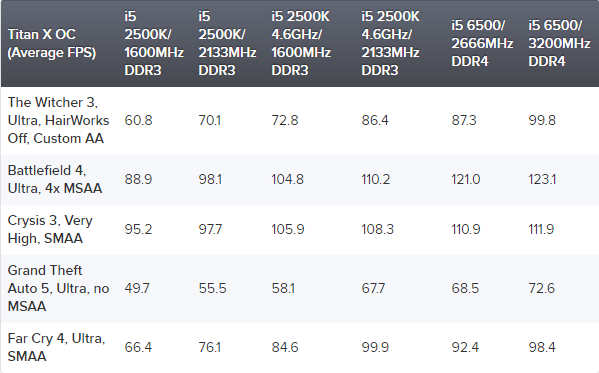Intel’s Kaby Lake Core i7-7700K Review
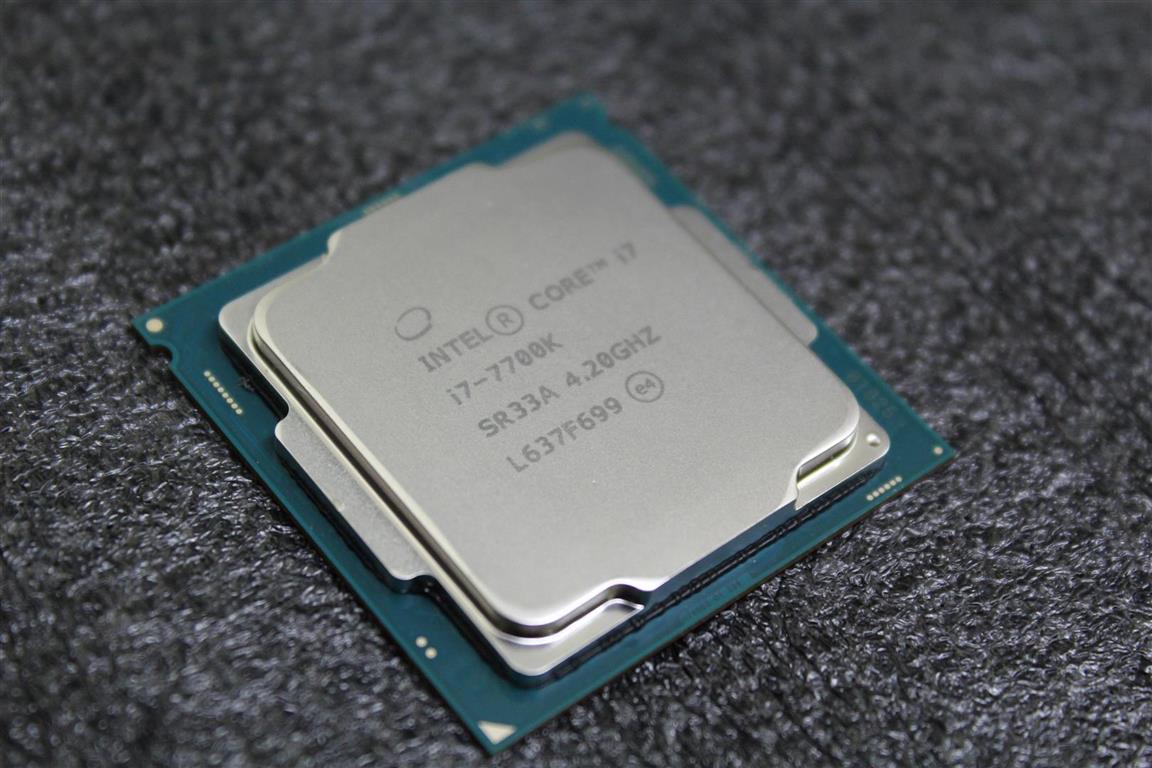
We are very excited to get an early sample of Intel’s next 7th generation of Kaby Lake desktop processor. The Intel Core I7-7700K to be exact and prepared this review/comparison to show what new Intel is to offer with Kaby lake.
This review is not about an in-depth technological analysis of the Kaby Lake architecture, but instead a head on comparisons of Kaby Lake and Skylake (its predecessor) processor.
Build on a 14 nanometer and with the same LGA 1151 socket as Skylake, the Kaby Lake processor seems to be just an optimized version of Skylake with factory overclocking or it is something all together a different story. Let’s find out below.
First the latest three generation of Intel’s top of the line desktop end processors side by side.
From left to right, first we have Intel Core i7-6700K the Skylake processor, than there is the Intel Broadwell-E Core i7-6950X processor a 10-cores 20- threads beast and last on the right hand side we have the new Intel’s Kaby Lake Core i7-7700K Quad-Core processor.
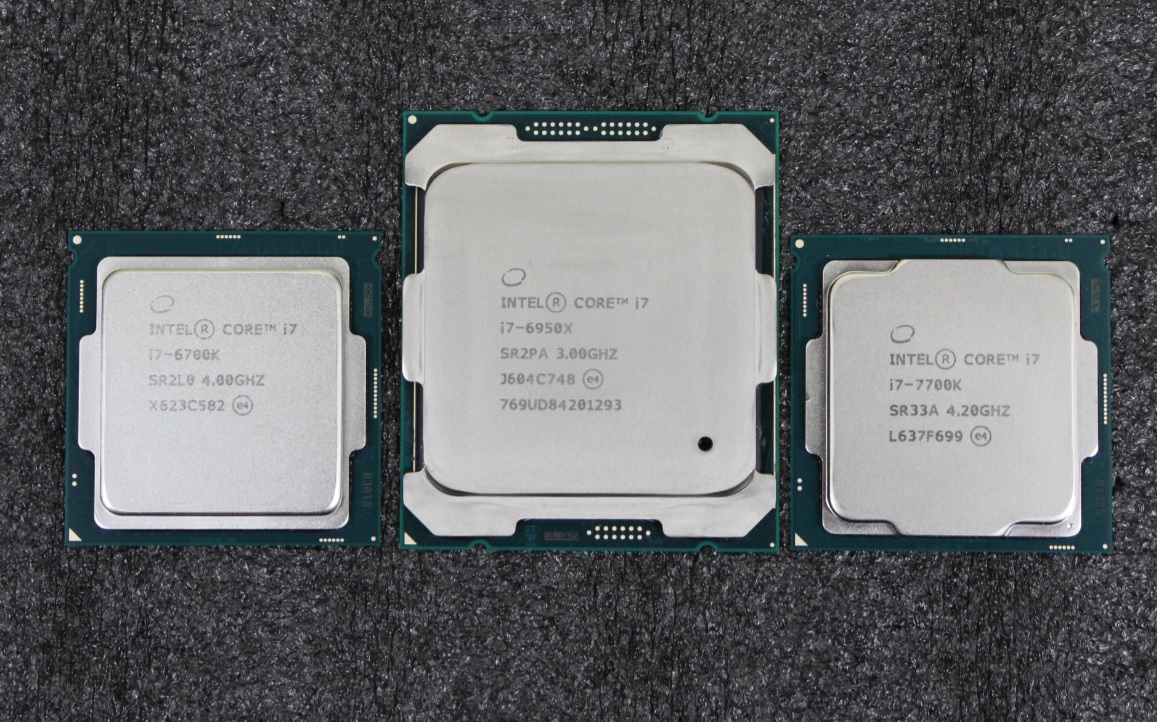
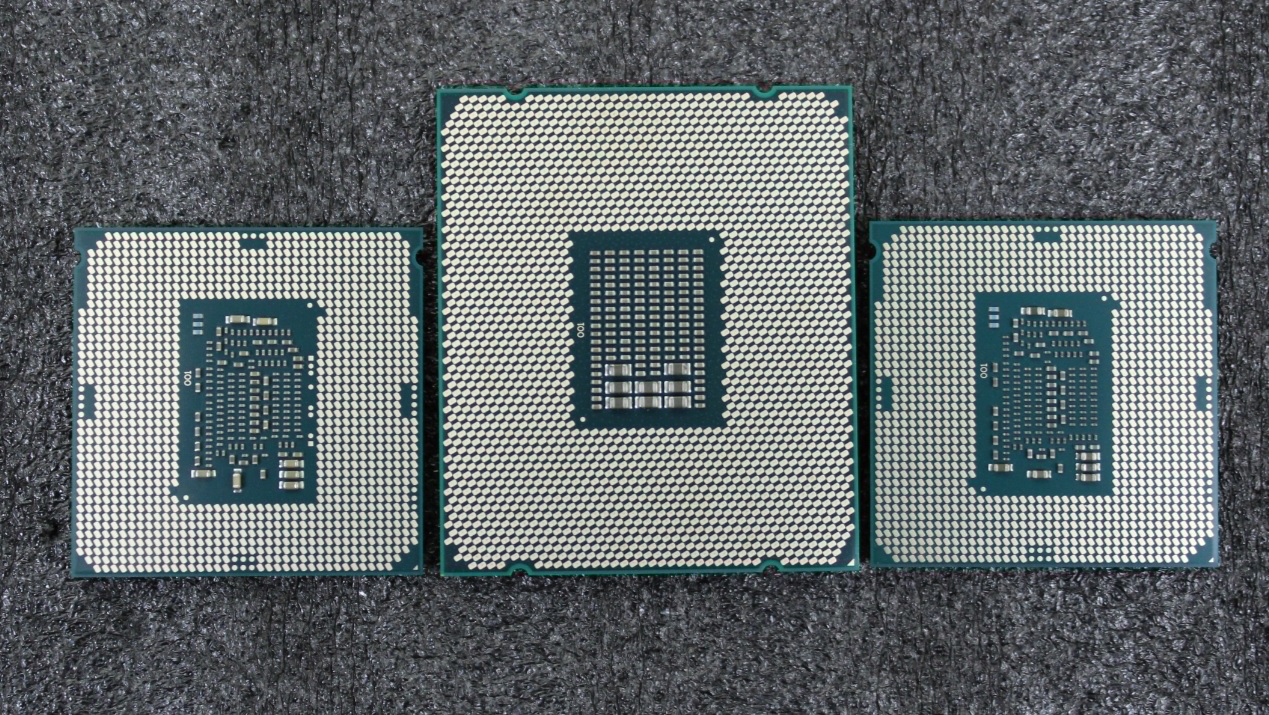
We will be comparing Intel Core i7-6700K against Intel Core i7-7700K cpu below.
Features
Package
Taking a close look on the Kaby lake CPU, Intel have redesigned the IHS(Integrated Heat Spreader) of the processor, increasing the top contact area of IHS by small fraction .
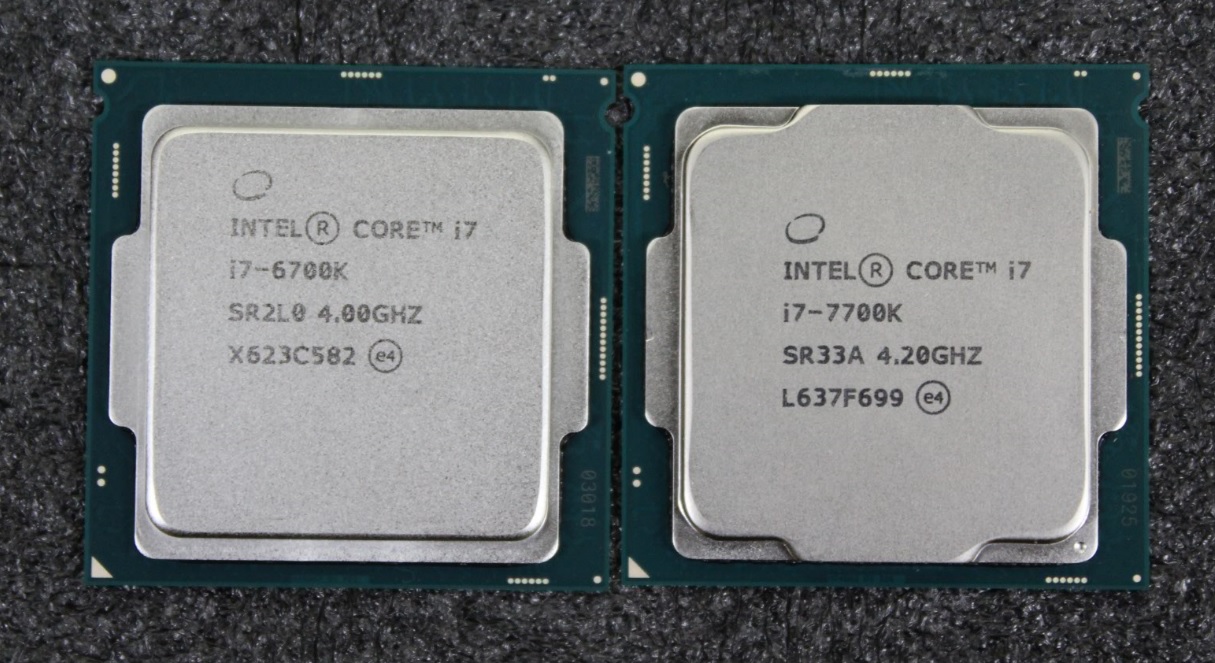
On bottom contact pad side, we have the same number of by-pass capacitors and exact pads layout as Skylake. But we can clearly see that Intel have removed some of the test point pads from Kaby Lake it seems as all of the testing have already conduct during Skylake.
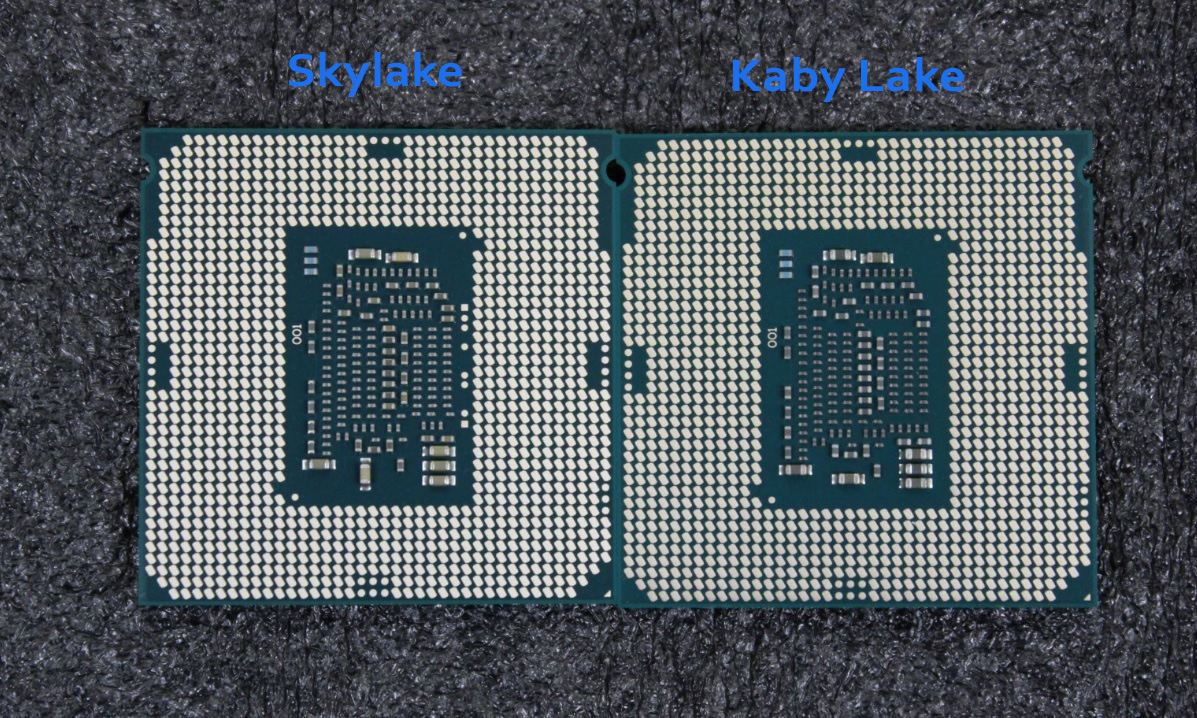
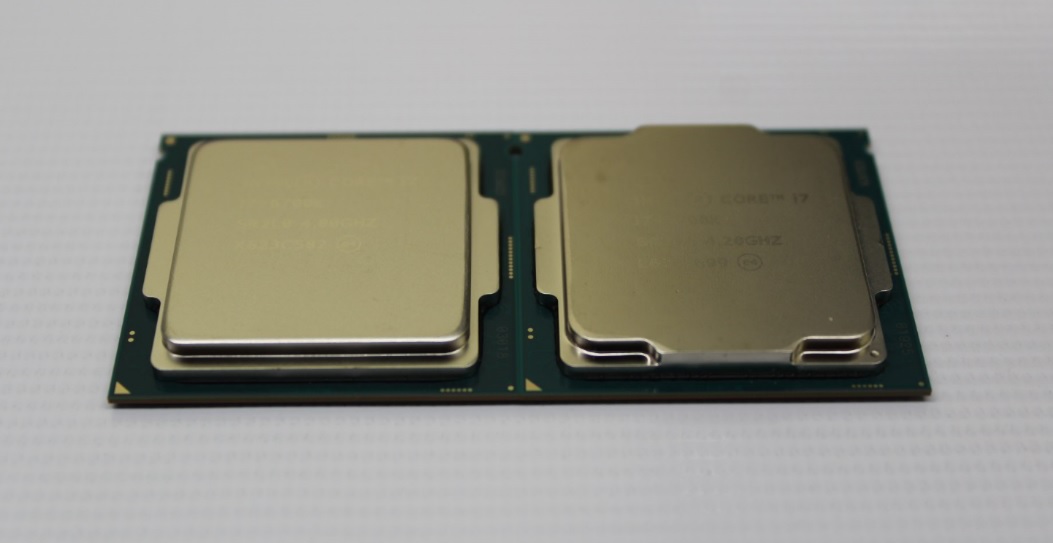
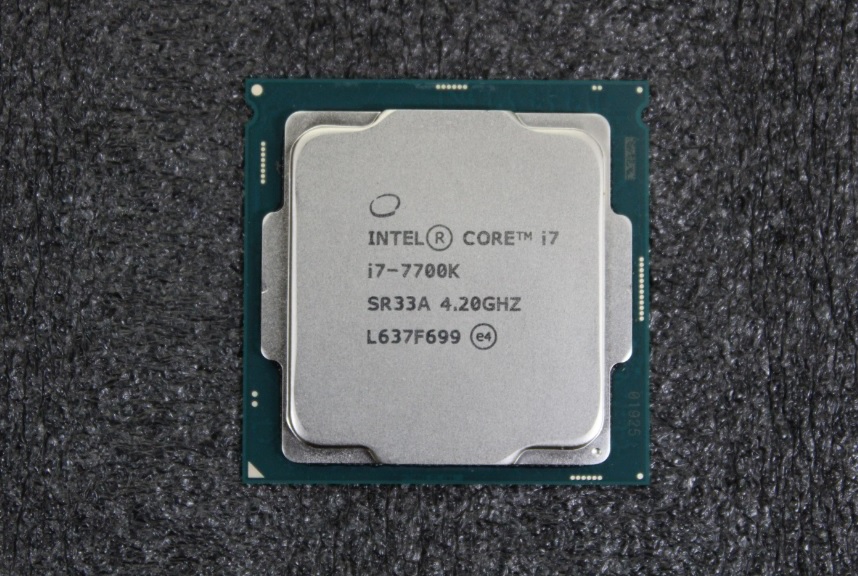
Testing
For testing both Skylake and Kaby Lake CPU, we are using board with Intel Z170 chipset for Skylake (GIGABYTE Z170X Gaming G1) and for Kaby Lake we are using a new motherboard (GIGABYTE Z270X Gaming 5) with Intel’s new chipset, the Intel Z270 chipset.
For even comparison I have overclocked the Skylake CPU up to 4.5GHz to match the max core speed of Kaby lake CPU.
The Intel’s new Z270 chipset offers following plus points against the older Z170 chipset.
Test system configuration - Skylake
CPU - Intel Core i7 6700K
Board - GIGABYTE Z170X Gaming G1
RAM - 2 X 8GB HyperX SAVAGE DDR4 3000Mhz
SSD - Corsair Force GT 240
Cooler / Case - Custom Phase Changer Rig
GFX - GIGABYTE GTX 1050Ti
PSU - Cooler Master V1000
Display - Acer S220HQL
OS - Windows 10
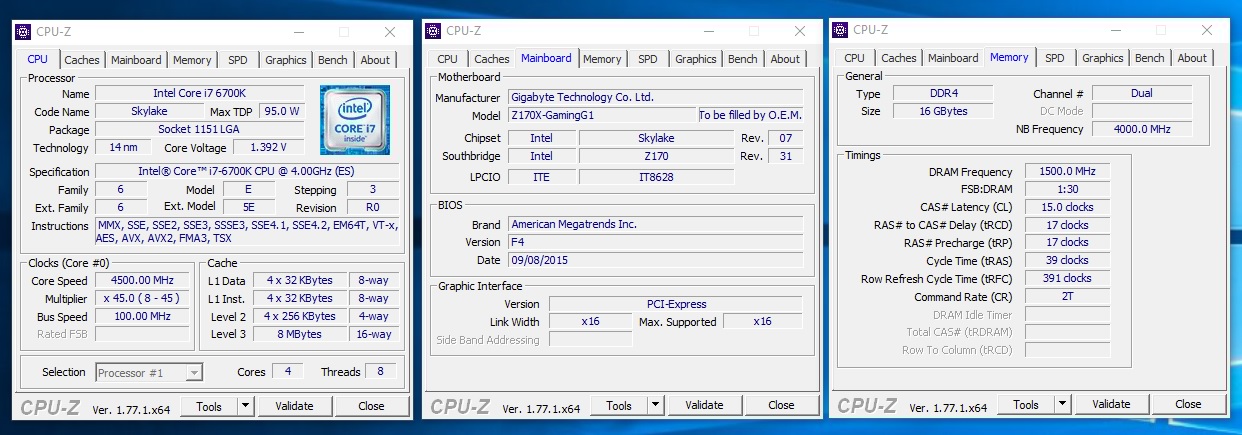
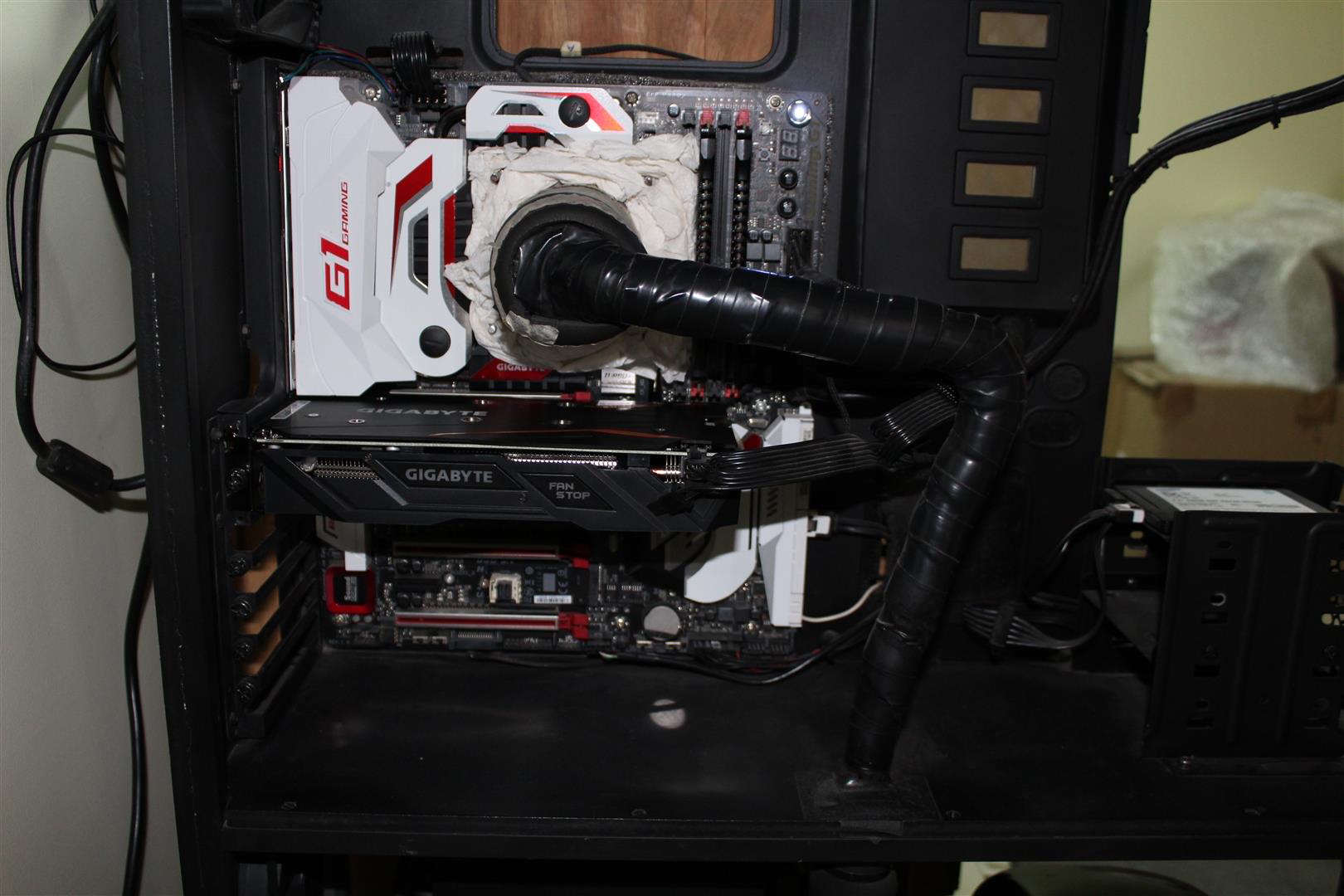
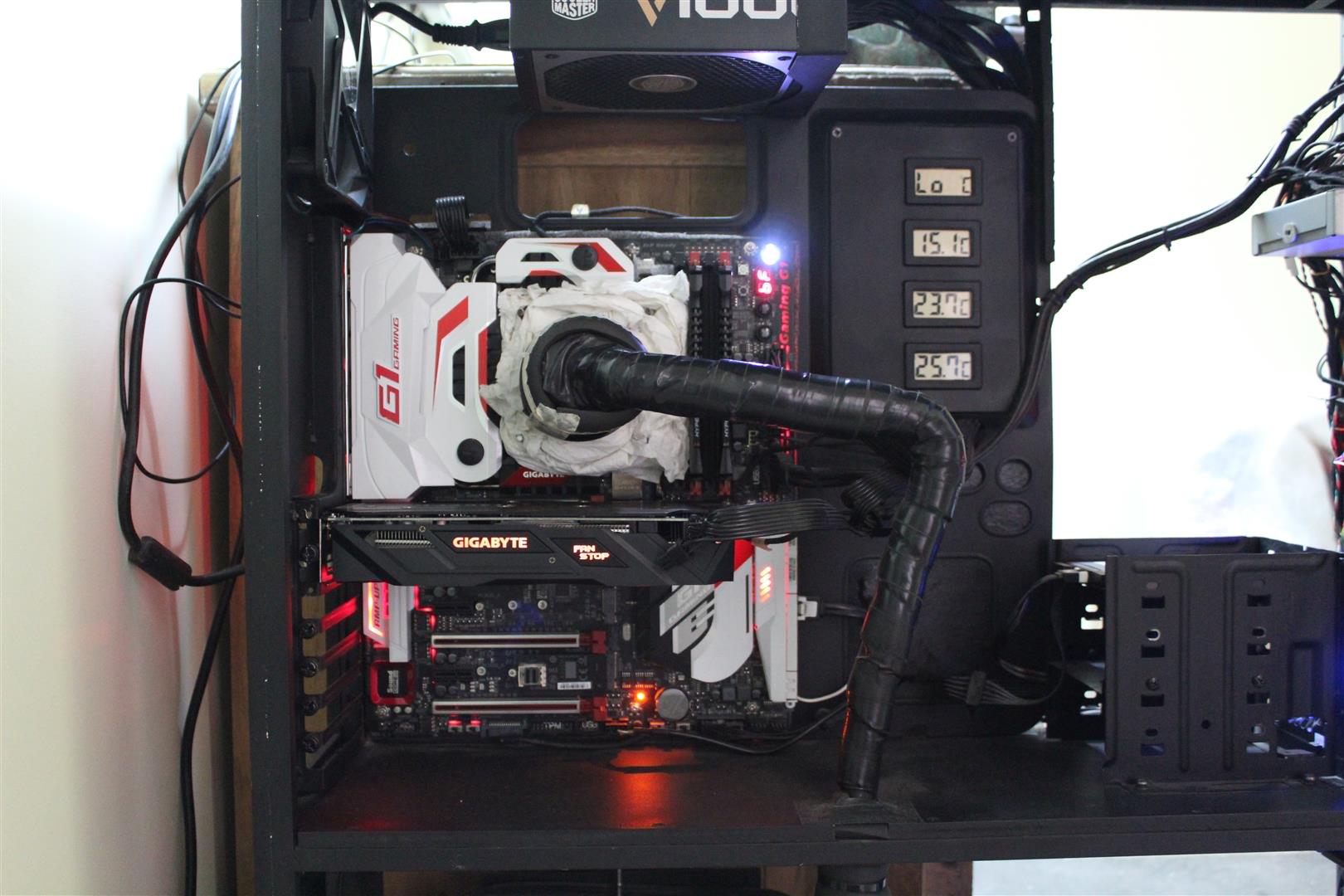
Test system configuration - Kaby Lake
CPU - Intel Core i7 7700K
Board - GIGABYTE Z270X Gaming 5
RAM - 2 X 8GB HyperX SAVAGE DDR4 3000Mhz
SSD - Corsair Force GT 240
Cooler / Case - Custom Phase Changer Rig
GFX - GIGABYTE GTX 1050Ti
PSU - Cooler Master V1000
Display - Acer S220HQL
OS - Windows 10
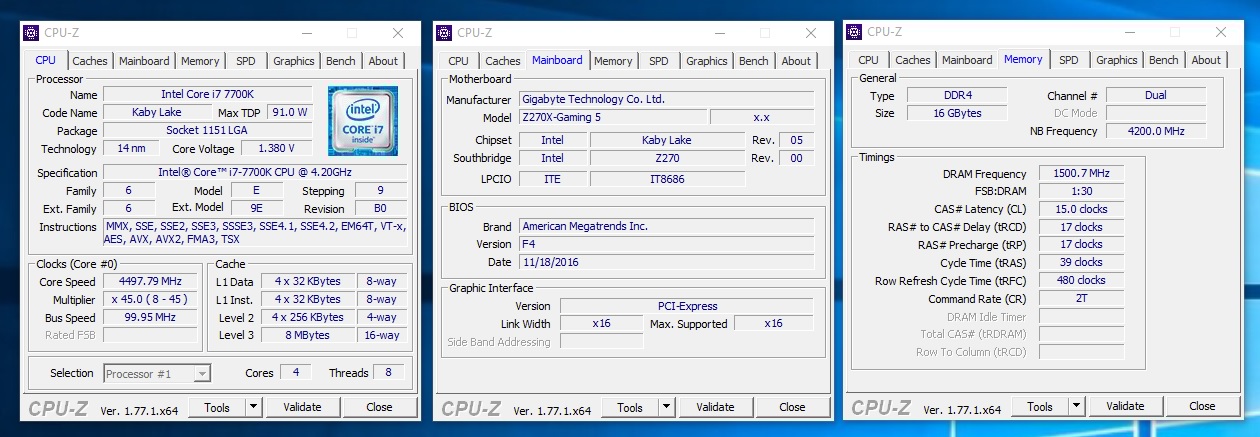
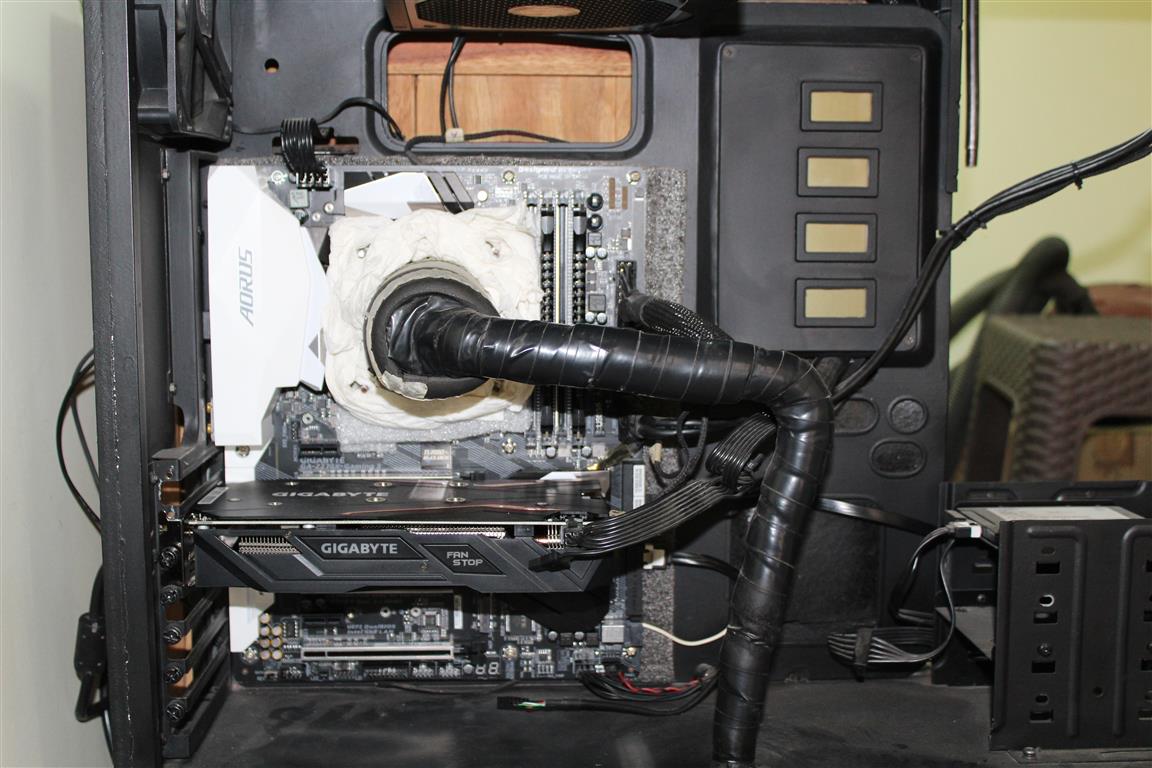
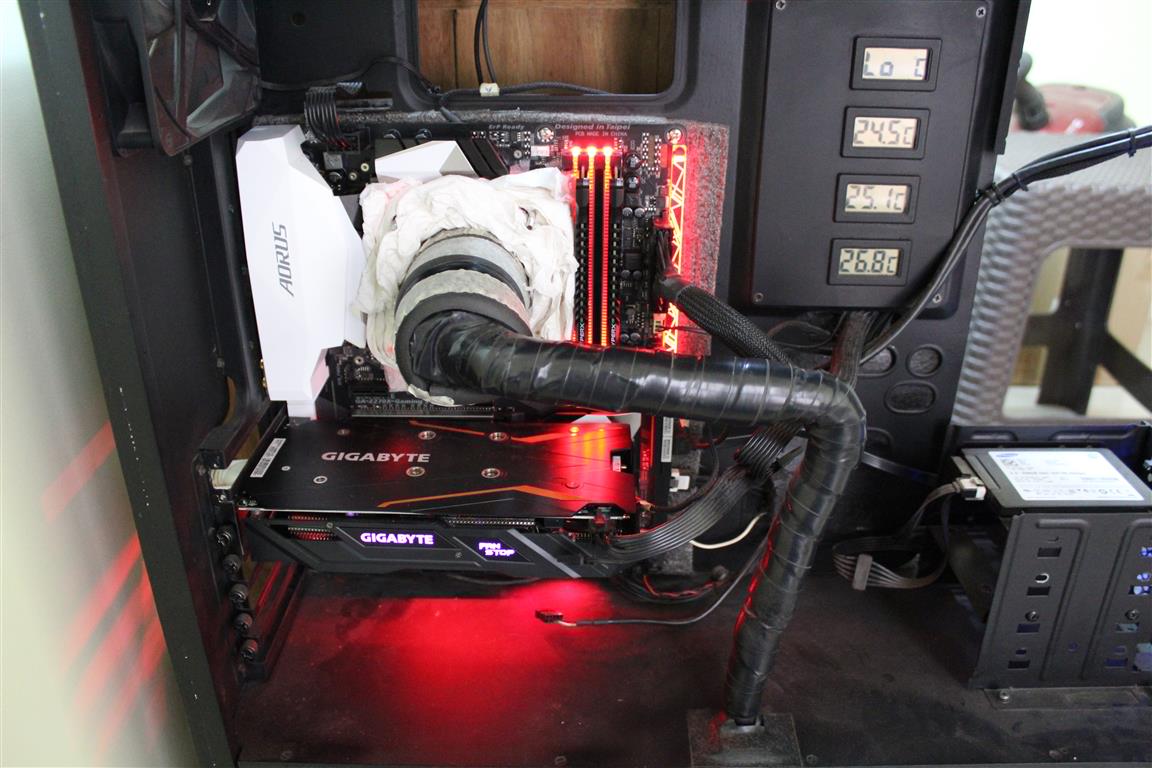
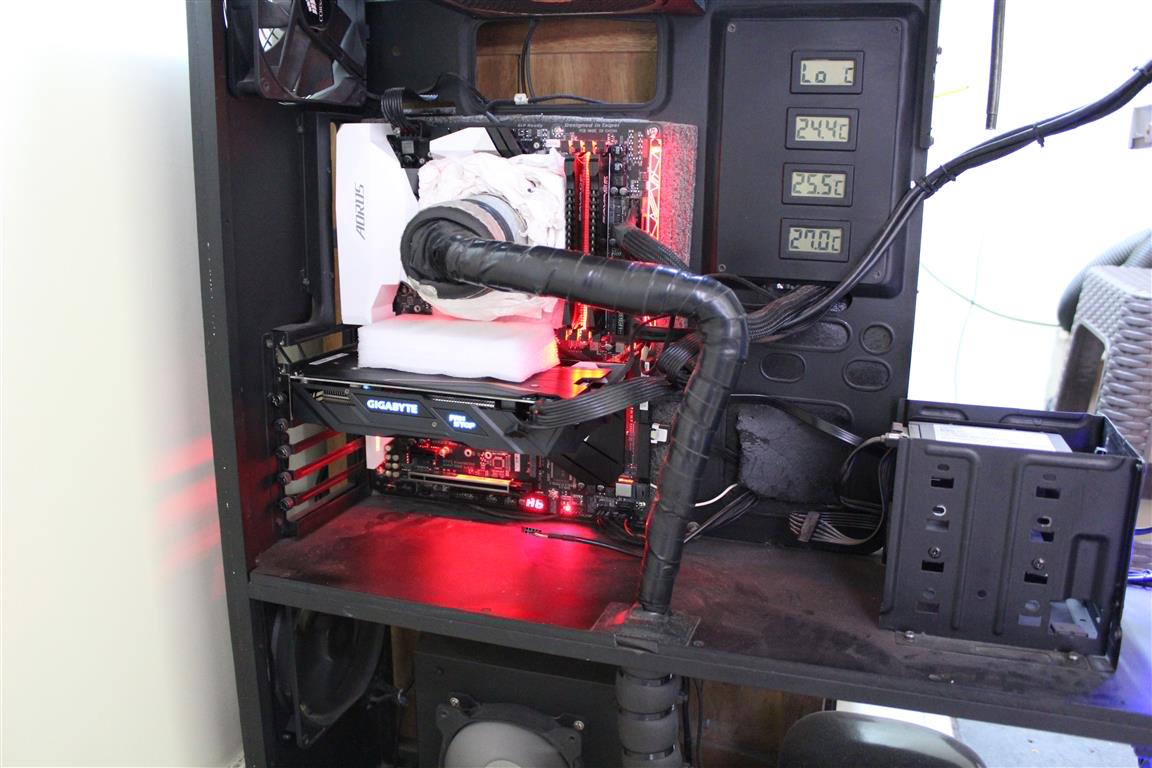
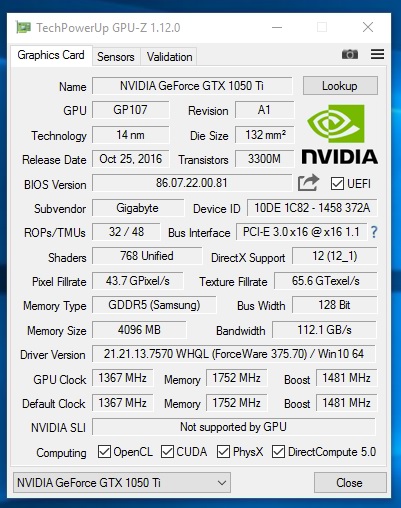
Benchmarks - CPU
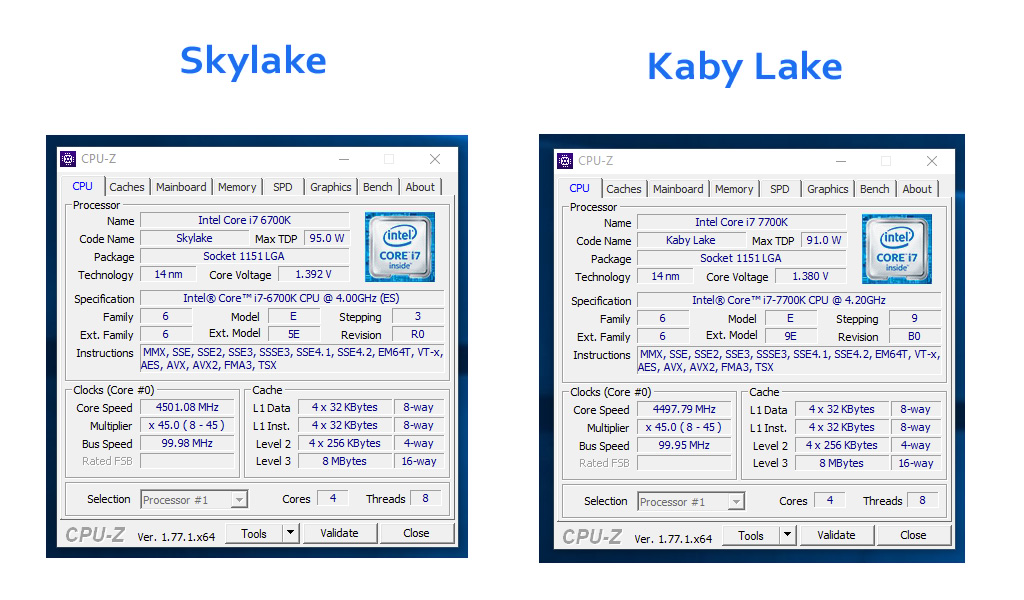
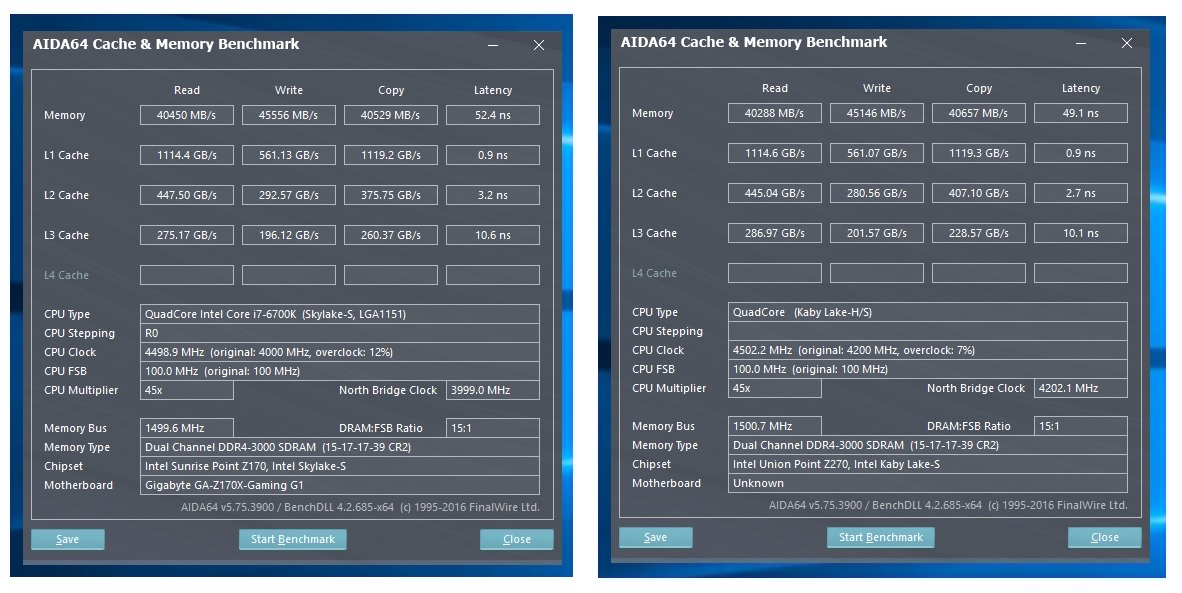
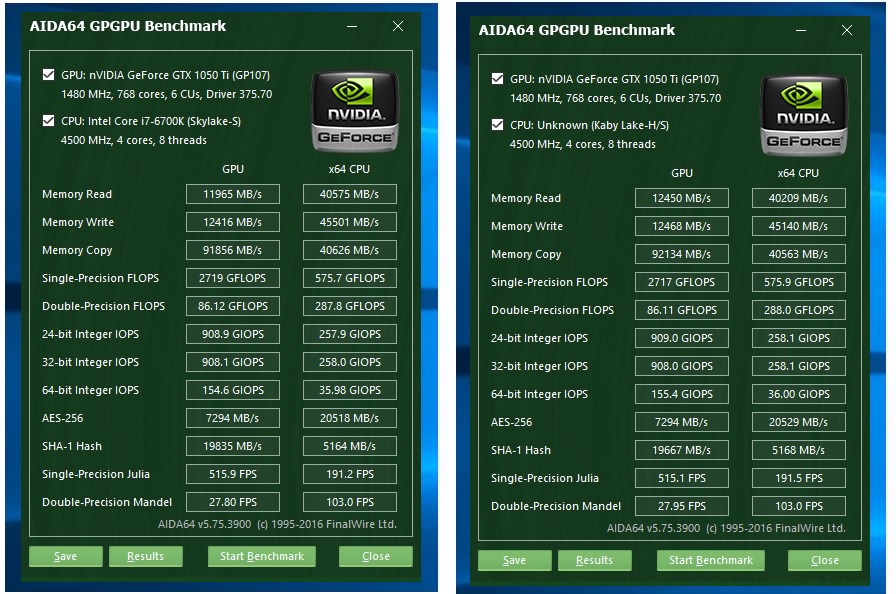

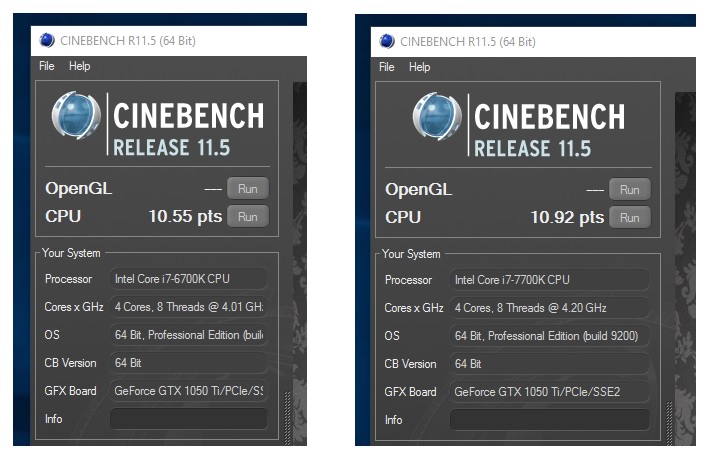
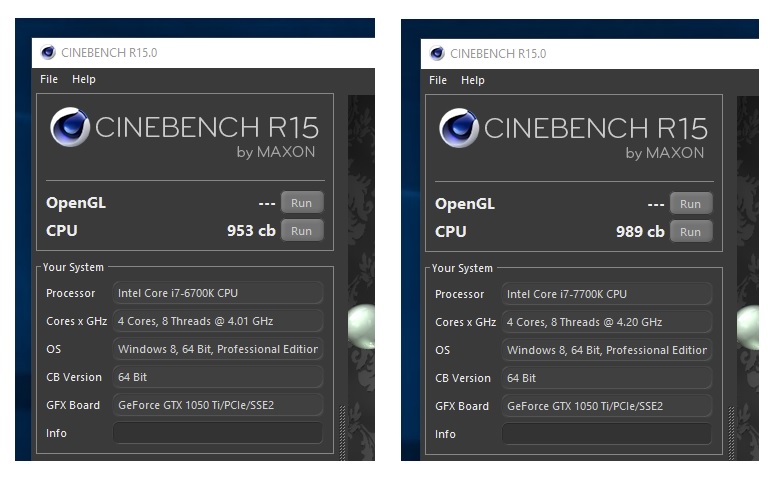
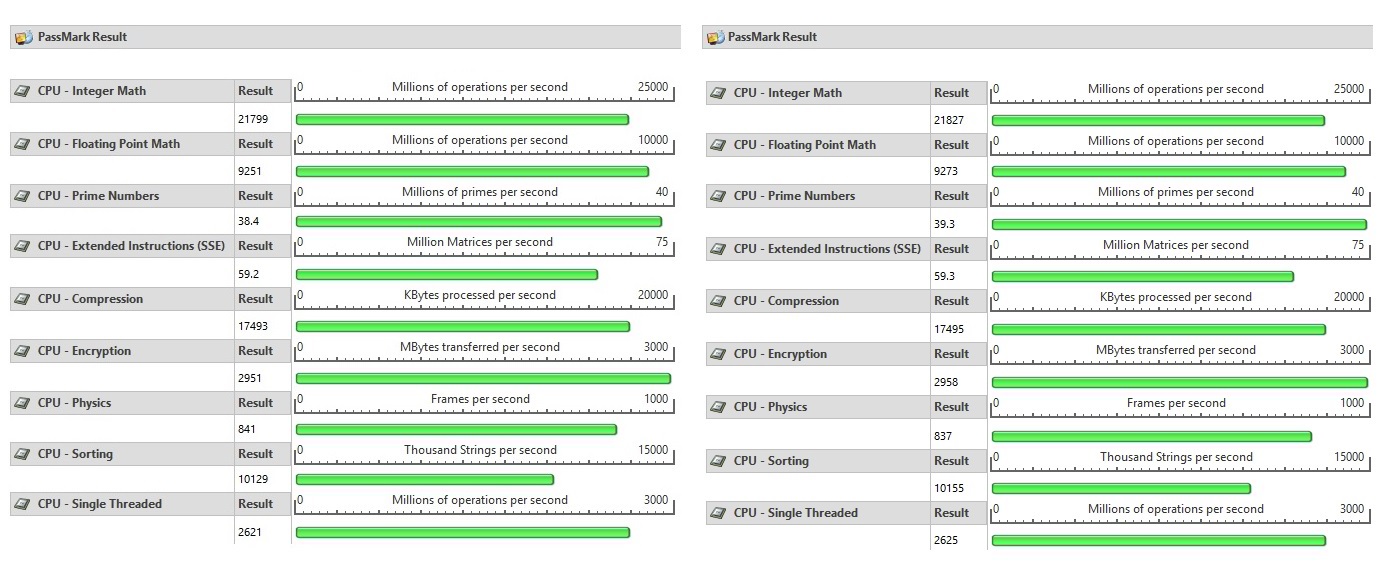
Benchmarks - DISK
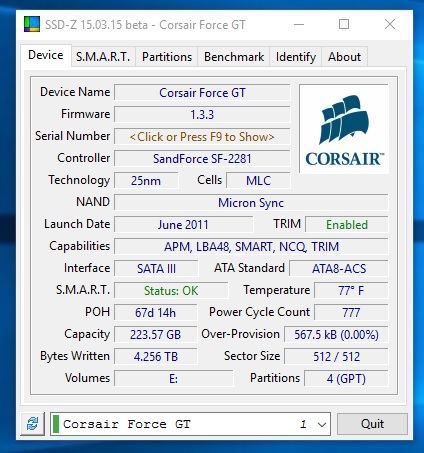
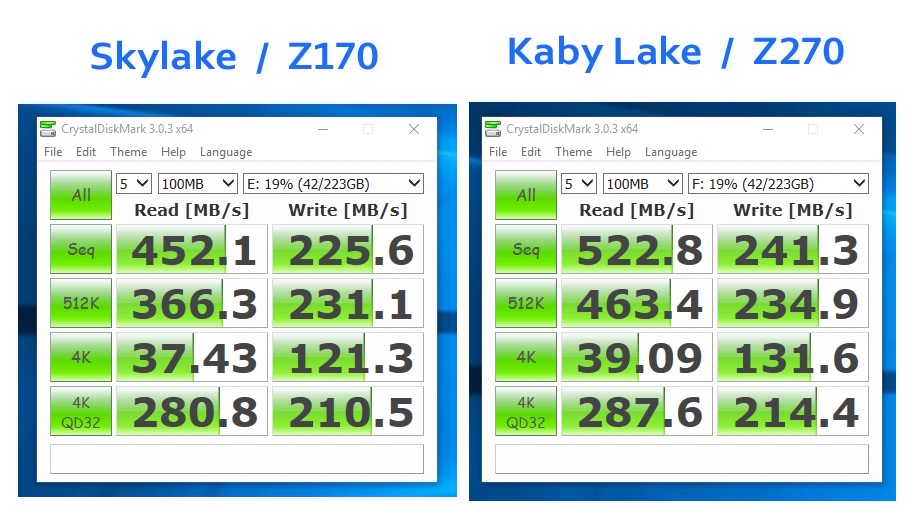
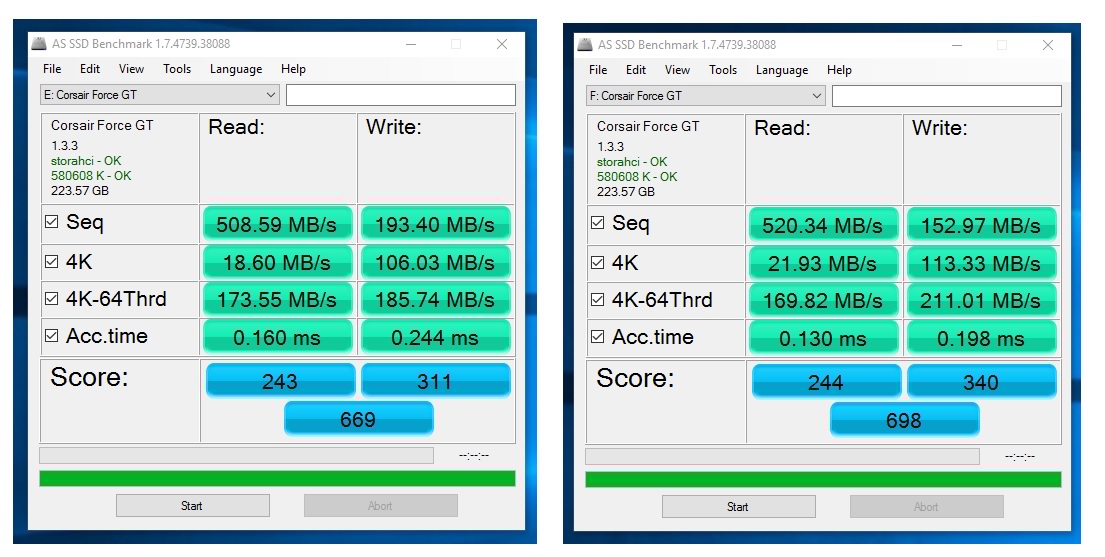
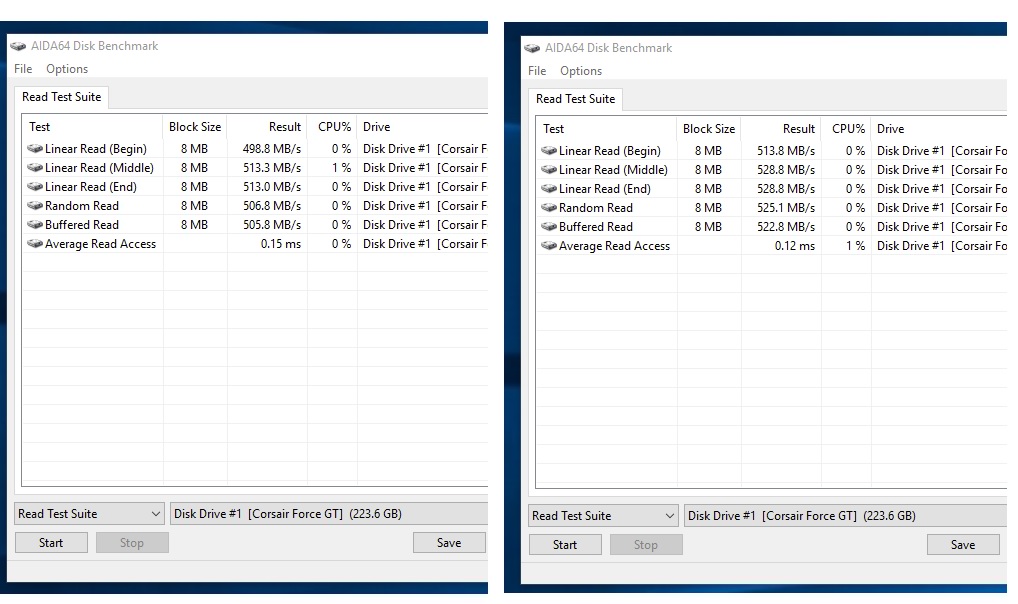

Overclocking
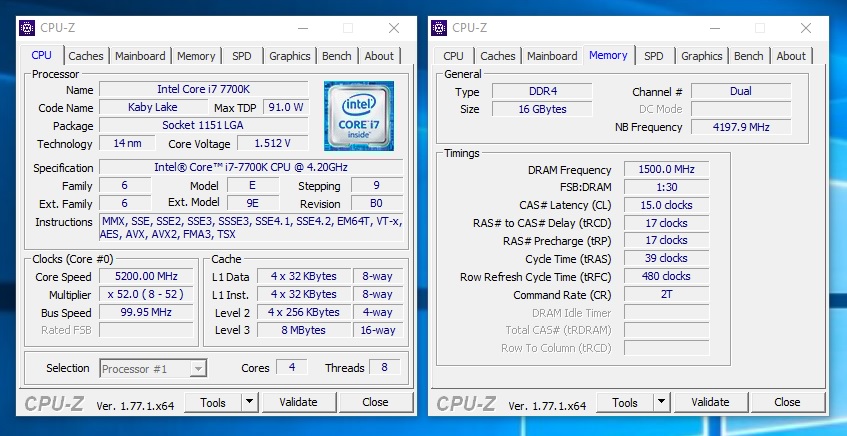
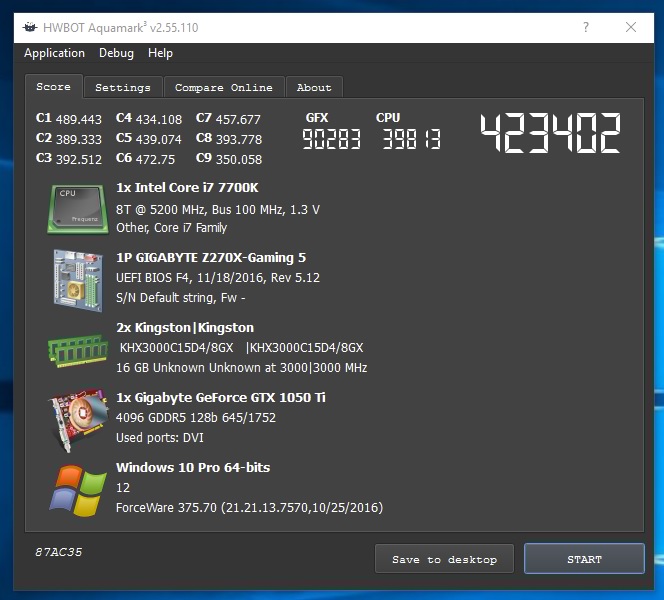
Maximum OC up to 5.4GHz
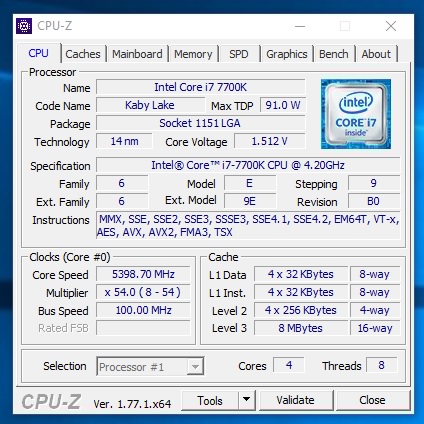
Thermal Performance
To check thermal handling of both CPUs we used two different approach. First we used AIO cooler (Cooler Master Nepton 240M ) on both CPUs. Second we cooled down both CPUs up to -34C using Single stage Phase Changer. Now we put load on both CPUs by started Intel Extreme Tuning Utility CPU stress test for 10 minutes and plot the following graph registering change in temperature
AIO cooling
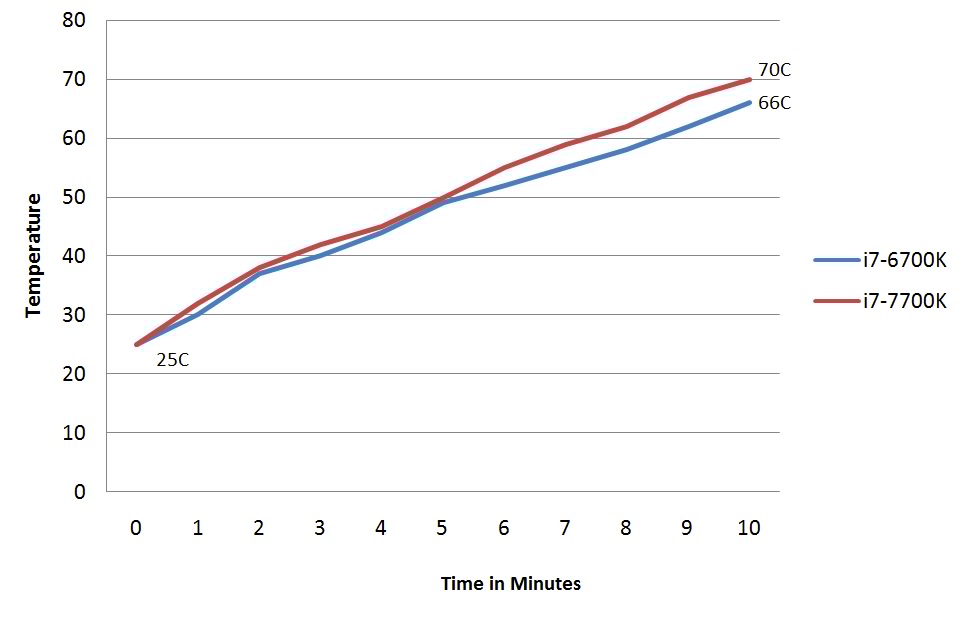
Phase Changer cooling
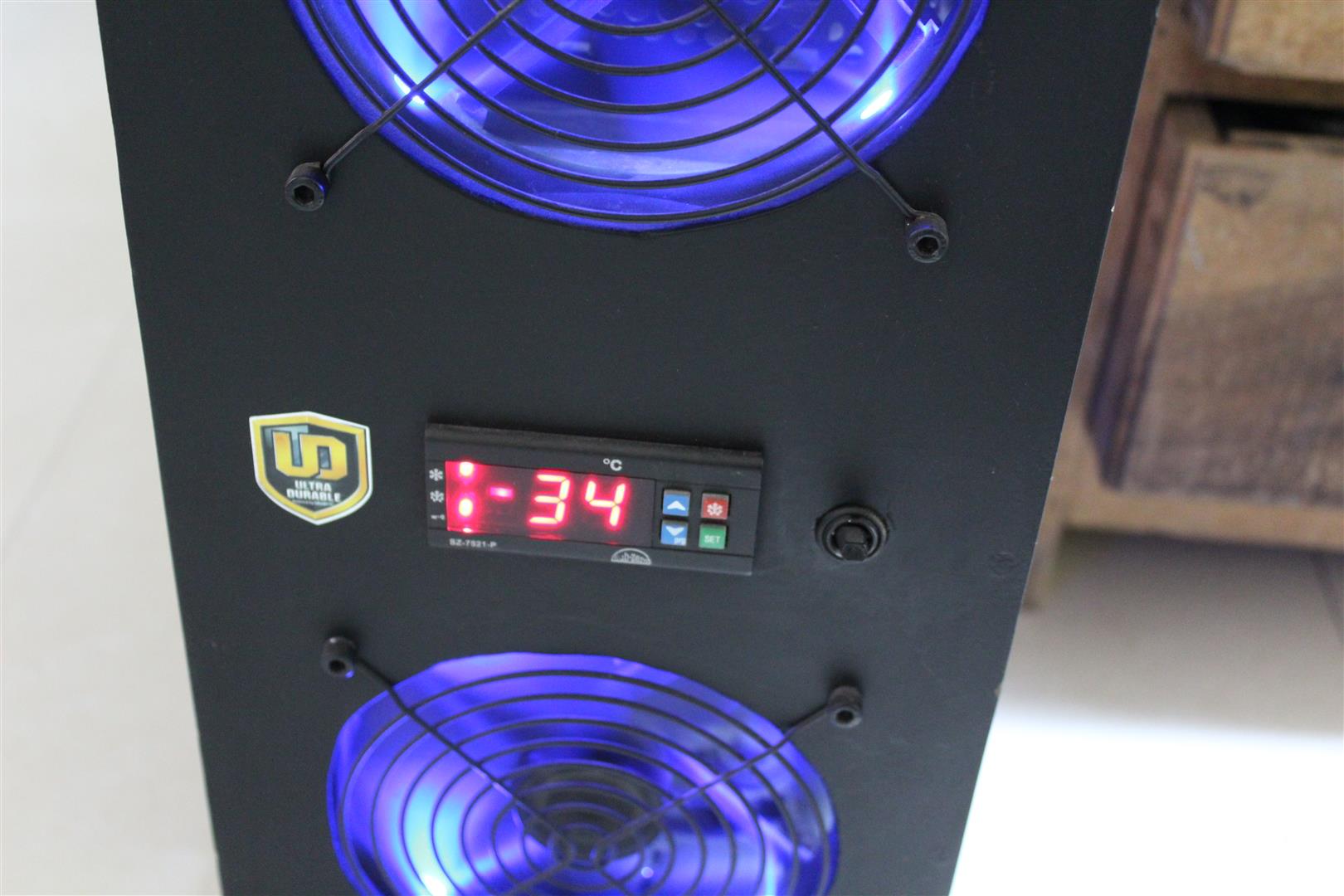
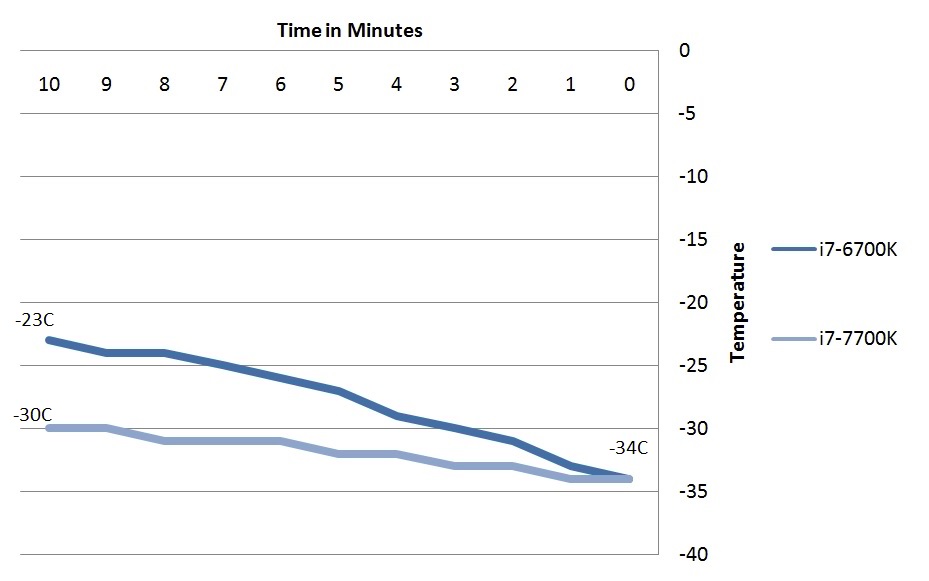
From above temperature testing we noticed that with AIO cooling solution the new Kaby Lake showed poor thermal performance than the older Skylake generation, but extreme cooling showed a slight different story, there is little less increase in temperature of i7-7700K CPU than that of i7-6700K CPU under a 10 minutes stress test. The new TIM on i7-7700K appears to work slight better under sub-zero temperature or it seems that the TIM on i7-6700K has aged due to time.
Intel have just only changed the IHS design in Kaby Lake, the internal thermal compound is still crappy as that of the 6th generation of processors.
Power Consumption
There was not a major power consumption difference noticed between i7-6700K and i7-7700K CPU .
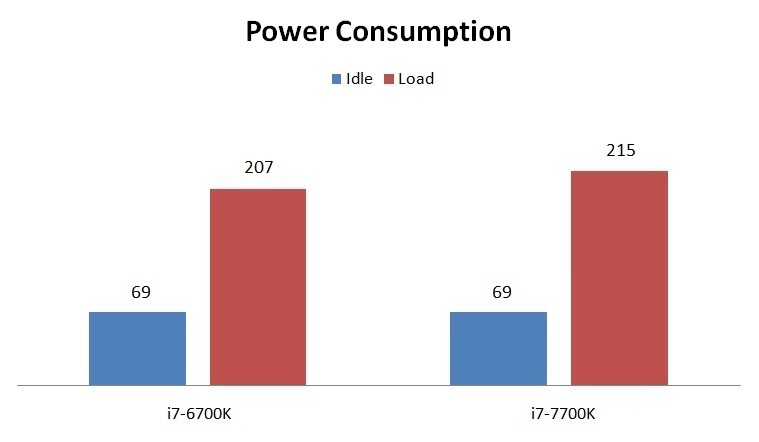
Pros
Cons
Conclusion
For most enthusiasts out there the new Core i7-7700K CPU is nothing great to like about. With hike in the clock speed the Core i7-7700K offers a noticeable performance boost at stock clock against its predecessor generation Core i7-6700K CPU, making it the fastest desktop processor every produced by Intel.
With just a BIOS update one can use the new Kaby Lake CPU on existing Z170 platform. And Core i7-7700K could be an option for a new pc build and people who are looking for an upgrade from older generation CPUs.
It is very sad to see that Intel is still using a poor quality internal Thermal interface material with the new Core i7-7700K Kaby Lake CPU. Intel can justify that the applied TIM keeps the silicon under its thermal limitations according to its datasheet, but still for an end user point a better thermal compound will help benefit in overall system’s thermal management for a long run, which is clearly being neglected by Intel.
Source / More info
Thanks.

We are very excited to get an early sample of Intel’s next 7th generation of Kaby Lake desktop processor. The Intel Core I7-7700K to be exact and prepared this review/comparison to show what new Intel is to offer with Kaby lake.
This review is not about an in-depth technological analysis of the Kaby Lake architecture, but instead a head on comparisons of Kaby Lake and Skylake (its predecessor) processor.
Build on a 14 nanometer and with the same LGA 1151 socket as Skylake, the Kaby Lake processor seems to be just an optimized version of Skylake with factory overclocking or it is something all together a different story. Let’s find out below.
First the latest three generation of Intel’s top of the line desktop end processors side by side.
From left to right, first we have Intel Core i7-6700K the Skylake processor, than there is the Intel Broadwell-E Core i7-6950X processor a 10-cores 20- threads beast and last on the right hand side we have the new Intel’s Kaby Lake Core i7-7700K Quad-Core processor.


We will be comparing Intel Core i7-6700K against Intel Core i7-7700K cpu below.
Features
- Processor Number : i7-7700K
- Lithography : 14 nm
- No. of Cores : 4
- No. of Threads : 8
- Processor Base Frequency : 4.20 GHz
- Max Turbo Frequency : 4.50 GHz
- Cache : 8 MB SmartCache
- Socket : LGA 1151
Package
Taking a close look on the Kaby lake CPU, Intel have redesigned the IHS(Integrated Heat Spreader) of the processor, increasing the top contact area of IHS by small fraction .

On bottom contact pad side, we have the same number of by-pass capacitors and exact pads layout as Skylake. But we can clearly see that Intel have removed some of the test point pads from Kaby Lake it seems as all of the testing have already conduct during Skylake.



Testing
For testing both Skylake and Kaby Lake CPU, we are using board with Intel Z170 chipset for Skylake (GIGABYTE Z170X Gaming G1) and for Kaby Lake we are using a new motherboard (GIGABYTE Z270X Gaming 5) with Intel’s new chipset, the Intel Z270 chipset.
For even comparison I have overclocked the Skylake CPU up to 4.5GHz to match the max core speed of Kaby lake CPU.
The Intel’s new Z270 chipset offers following plus points against the older Z170 chipset.
- New Intel Optane Technology, which promising the elimination of system bottleneck which requires fast and better storage memory. read more about Intel Optane Technology.
- Intel Rapid Storage Technology Version 15 against older version 14
- Increase in Maximum High Speed I/O Lanes ( HSIO) from 26 to 30 lanes
- Increase in Maximum PCIe Express 3.0 Lanes from 20 to 24 lanes
Test system configuration - Skylake
CPU - Intel Core i7 6700K
Board - GIGABYTE Z170X Gaming G1
RAM - 2 X 8GB HyperX SAVAGE DDR4 3000Mhz
SSD - Corsair Force GT 240
Cooler / Case - Custom Phase Changer Rig
GFX - GIGABYTE GTX 1050Ti
PSU - Cooler Master V1000
Display - Acer S220HQL
OS - Windows 10



Test system configuration - Kaby Lake
CPU - Intel Core i7 7700K
Board - GIGABYTE Z270X Gaming 5
RAM - 2 X 8GB HyperX SAVAGE DDR4 3000Mhz
SSD - Corsair Force GT 240
Cooler / Case - Custom Phase Changer Rig
GFX - GIGABYTE GTX 1050Ti
PSU - Cooler Master V1000
Display - Acer S220HQL
OS - Windows 10





Benchmarks - CPU







Benchmarks - DISK





Overclocking


Maximum OC up to 5.4GHz

Thermal Performance
To check thermal handling of both CPUs we used two different approach. First we used AIO cooler (Cooler Master Nepton 240M ) on both CPUs. Second we cooled down both CPUs up to -34C using Single stage Phase Changer. Now we put load on both CPUs by started Intel Extreme Tuning Utility CPU stress test for 10 minutes and plot the following graph registering change in temperature
AIO cooling

Phase Changer cooling


From above temperature testing we noticed that with AIO cooling solution the new Kaby Lake showed poor thermal performance than the older Skylake generation, but extreme cooling showed a slight different story, there is little less increase in temperature of i7-7700K CPU than that of i7-6700K CPU under a 10 minutes stress test. The new TIM on i7-7700K appears to work slight better under sub-zero temperature or it seems that the TIM on i7-6700K has aged due to time.
Intel have just only changed the IHS design in Kaby Lake, the internal thermal compound is still crappy as that of the 6th generation of processors.
Power Consumption
There was not a major power consumption difference noticed between i7-6700K and i7-7700K CPU .

Pros
- Higher stock clock speed.
- Newer 4000+ MHz of XMP profiles for DDR4 memory
- Z270 chipset shows slight increase in storage performance.
Cons
- Still crappy internal Thermal interface material (TIM)
- Not much of a performance difference against Skylake CPU
- Just increase of 4 extra PCIe Express Lanes.
Conclusion
For most enthusiasts out there the new Core i7-7700K CPU is nothing great to like about. With hike in the clock speed the Core i7-7700K offers a noticeable performance boost at stock clock against its predecessor generation Core i7-6700K CPU, making it the fastest desktop processor every produced by Intel.
With just a BIOS update one can use the new Kaby Lake CPU on existing Z170 platform. And Core i7-7700K could be an option for a new pc build and people who are looking for an upgrade from older generation CPUs.
It is very sad to see that Intel is still using a poor quality internal Thermal interface material with the new Core i7-7700K Kaby Lake CPU. Intel can justify that the applied TIM keeps the silicon under its thermal limitations according to its datasheet, but still for an end user point a better thermal compound will help benefit in overall system’s thermal management for a long run, which is clearly being neglected by Intel.
Source / More info
Thanks.



 And here am with my i5-2500(Non-k) running VMs, Phtoshop/LR & 1440p PC Gaming without any problems.
And here am with my i5-2500(Non-k) running VMs, Phtoshop/LR & 1440p PC Gaming without any problems. 